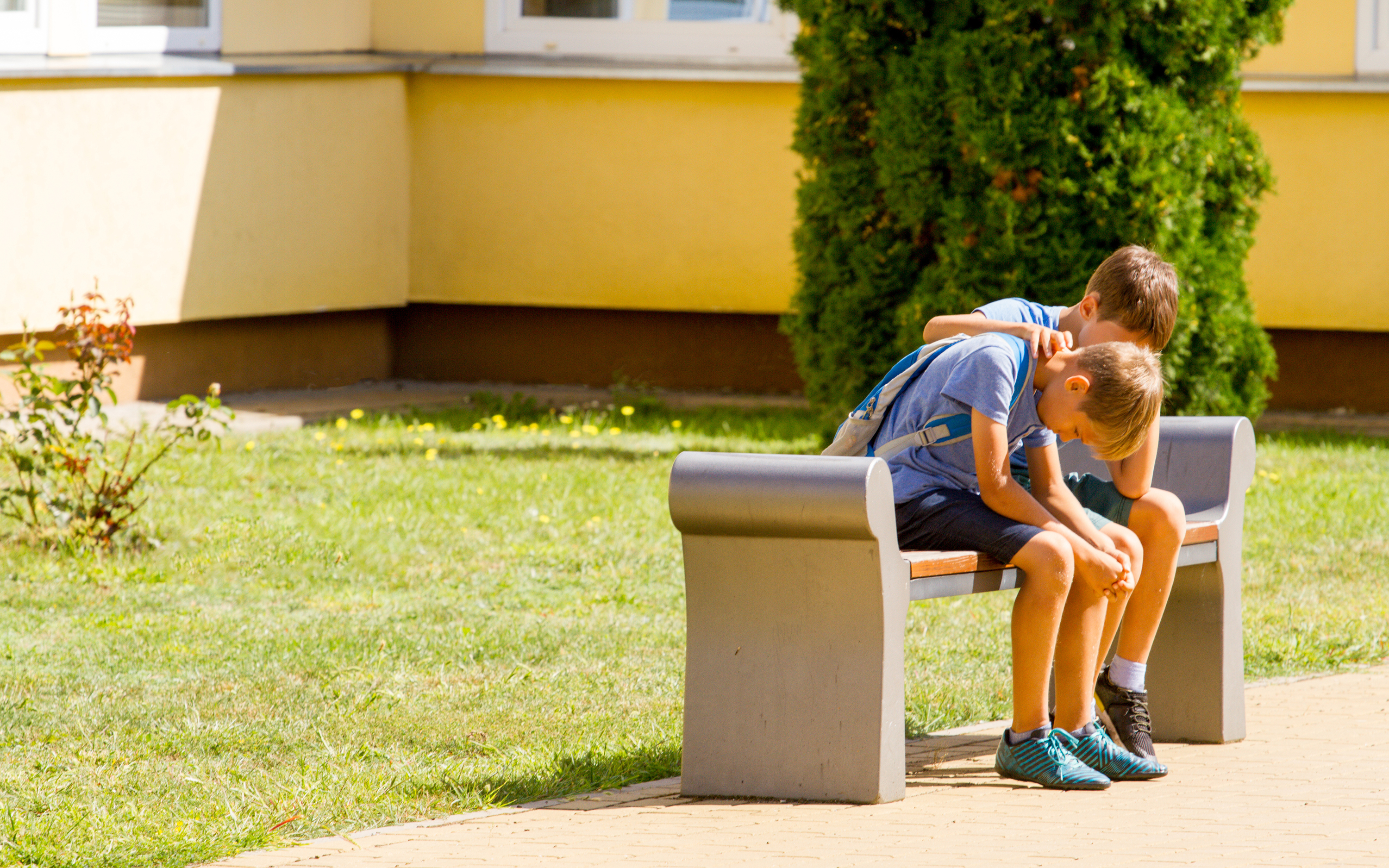In this series of articles, we have been examining how mindfulness can sometimes inadvertently reinforce the self-centeredness and self-absorption of our current times and how we may counter this through compassion in action. We need to remind ourselves that the true roots of mindfulness and compassion are intended to relieve the suffering of others as much as ourselves.
In exploring the ways that we can direct compassion to others, what better way than to consider children. Endeavoring to raise an empathic child who is attentive to others helps build a better community and counters the “me” culture that is so prevalent today. Further, considering how to make the children in our lives better people helps us reflect on how we ourselves can be more compassionate.
Considering how to make the children in our lives better people, helps us reflect on how we ourselves can be more compassionate.
Michelle Borba is an educational psychologist and expert in parenting, bullying, and empathy, and author of many books on character development in children, the most recent being UnSelfie: why empathic kids succeed in our all-about-me world (Simon & Schuster, 2016). In her work, she outlines current research on empathy in children and how we might cultivate kindness and caring in kids at different ages. She cites studies that show teens score 40% lower in empathy and are 58% more narcissistic than 30 years ago. Along with this, research shows increases in school and internet-based cruelty and bullying along with more cheating and less moral reasoning. Borba talks about the “Selfie Syndrome” as a form of growing narcissism in children and teens characterized by self-preoccupation, entitlement, difficulty taking responsibility and criticism, and feeling above the rules. This syndrome appears to be at least partially tied to our high pressure, media-saturated, high-tech culture.
Teaching Kids Emotional Literacy
If empathy is feeling another’s suffering and compassion is the desire to alleviate it then empathy is the gateway and what may be the antidote to the Selfie Syndrome (in our children and ourselves). And encouraging empathy begins with the development of emotional literacy: recognizing, labeling and managing both our own and others’ feelings. This core skill is especially important for boys who, in our hyper-macho culture, show lower levels of emotional literacy than girls.
Here are a few simple ways to begin helping young children learn emotional literacy:
- Mastering one’s emotional ABC’s begins with talking about feelings from an early age and labeling and validating your child’s and others’ emotional states because labeling emotions assists with regulating them
- Have young kids spend reflective time with babies, toddlers, and puppies who express their emotions in unfiltered ways;
- Teach children to read facial and other non-verbal emotional cues -show them emoji feeling charts, activities or have them watch Inside Out
- Unplug from technology as much as possible, as increased screen time decreases the face to face socialization kids need to learn and practice emotional fluency. Emoji filled text messages of 160 characters or less don’t really convey true emotions and can be hard to read.
Cultivating Perspective-Taking with Kids
In contrast to sympathy, in which one cares but does not necessarily feel another’s suffering, empathy involves perspective taking, wherein we begin to understand the thoughts, emotions, and needs of others, developing the ability to walk in their shoes. This skill paves the way for kindness, as well as supports learning how to compromise and resolve conflict. The component parts to seeing another’s point-of-view include paying attention to others through focused, attentive listening and reading non-verbal cues; identifying thoughts, feelings, motivations and intentions; and imagining the other person’s experience with consideration of its impact. For example, if a child hurts another by name calling or taking away a toy, you might ask, “How would you feel if your friend did that to you?”
Here are a few ways to cultivate perspective-taking with children:
- Practice compassionate limit-setting. Instead of condemning or condoning certain behaviors, help kids understand what others may feel as a result of their actionsFor example, you could say:, “What do you think Meghan feels like when you take her toy from her”.
- Help children relate to other’s feelings using their own experiences. You could say something like: “Remember that time you were feeling hurt or angry about…”.
- Read relevant books such as, Amos and Boris, Enemy Pie, Listening to my Body or Visiting Feelings (see this wonderful list of kids books that spark conversations about empathy.)
- Despite our knock against screen time, it can be helpful to watch selected videos and then follow them up with reflective discussion on various character’s, emotions, thoughts, and motivations. (for example, for young children: Bush Baby is Happy & Sad or such shows as Clangers ; For older kids, movies like Inside Out and Wonder.
Nourishing a Strong Moral Compass
Another core skill for encouraging empathy is building a strong moral compass. As adults, we model our own ethical codes and values for the children in our lives, and we articulate the values of our family and community. We also nurture and reinforce prosocial actions, like …. holding the door for strangers, volunteering in our community, helping a neighbor in need, donating our time or money, or going to a rally or demonstration. We are socializing our children with respect to what we consider right and wrong, focussing on both character and behavior; nurturing the traits of kindness, caring and generosity. When we praise our children for their displays of these behaviors, big or small, we reinforce the idea that their character and moral compass is as important as their scholastic, social and physical accomplishments.
Raising empathic kids who grow into compassionate adults is not easy, especially when so many currents in contemporary society work against a focus on others and the importance of emotional intelligence. it. With our cultural and political leaders increasingly, and unapologetically, acting in self-absorbed and self-serving ways, instilling in our children these skills of emotional literacy, perspective taking and developing a moral compass is one of the most radical, courageous, and hopeful things we can do for our future generations.








